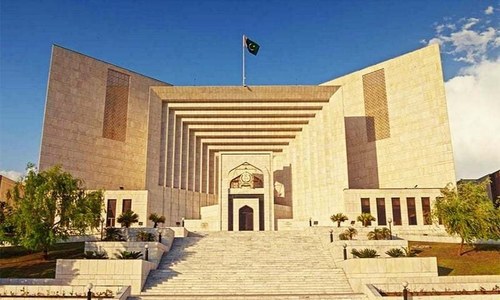THE National Accountability Bureau drew the ire of the Supreme Court this week because of its repeated 90-day physical remand of those under investigation. The court was critical of the bureau’s disturbing practice of detaining the same suspects for 90 days by filing multiple references against them. While the court clarified that it did not object to NAB’s authority to detain a suspect once, it termed the trend of continuous custody as cruel and unjust.
That the judiciary has once again reprimanded NAB for its prolonged detention of under-investigation individuals should serve as a serious wake-up call for the bureau, whose reputation as an intimidating behemoth is only growing.
Earlier this year, Justice Maqbool Baqar while granting bail to former railways minister and PML-N stalwart Khawaja Saad Rafique and his brother Khawaja Suleman Rafiq, too, had cautioned the bureau when he observed that the means, process and mechanism of curbing corruption must be within the parameters of the law. The judgement had noted that the arrest of an individual is a grave matter but the “capricious exercise of the power to arrest had deleterious consequences and, therefore, needed to be exercised with care, caution and sensitivity”. The power of arrest should not be deployed as a tool of oppression and harassment, the judgement had emphasised.
Unfortunately, the fundamental tenet of criminal jurisprudence — which maintains that a person is innocent until proven guilty — appears to be ignored in these protracted detentions. Moreover, it seems that in its haste to detain and prosecute, NAB has forgotten that these are white-collar crimes and not cases of terrorism or murder.
The bureau should pay heed to the apex court’s warnings, and adjust its operations in a way that respects the liberty of the individual being investigated. Detaining an individual in one case, locking them away in NAB custody and then framing multiple cases against them to extend that detention is harassment. In far too many cases now, individuals under investigation have spent months — even years — in detention. In the case of Ahad Cheema, for instance, the accused had been in jail for 23 months with no reference filed against him. This is unconscionable, and can take a huge psychological toll on the suspect with no redress or compensation from the bureau. The power of arrest cannot be used as a tool of oppression, and the bureau must respect the apex court’s sound observations on the matter.
Published in Dawn, December 6th, 2020













































